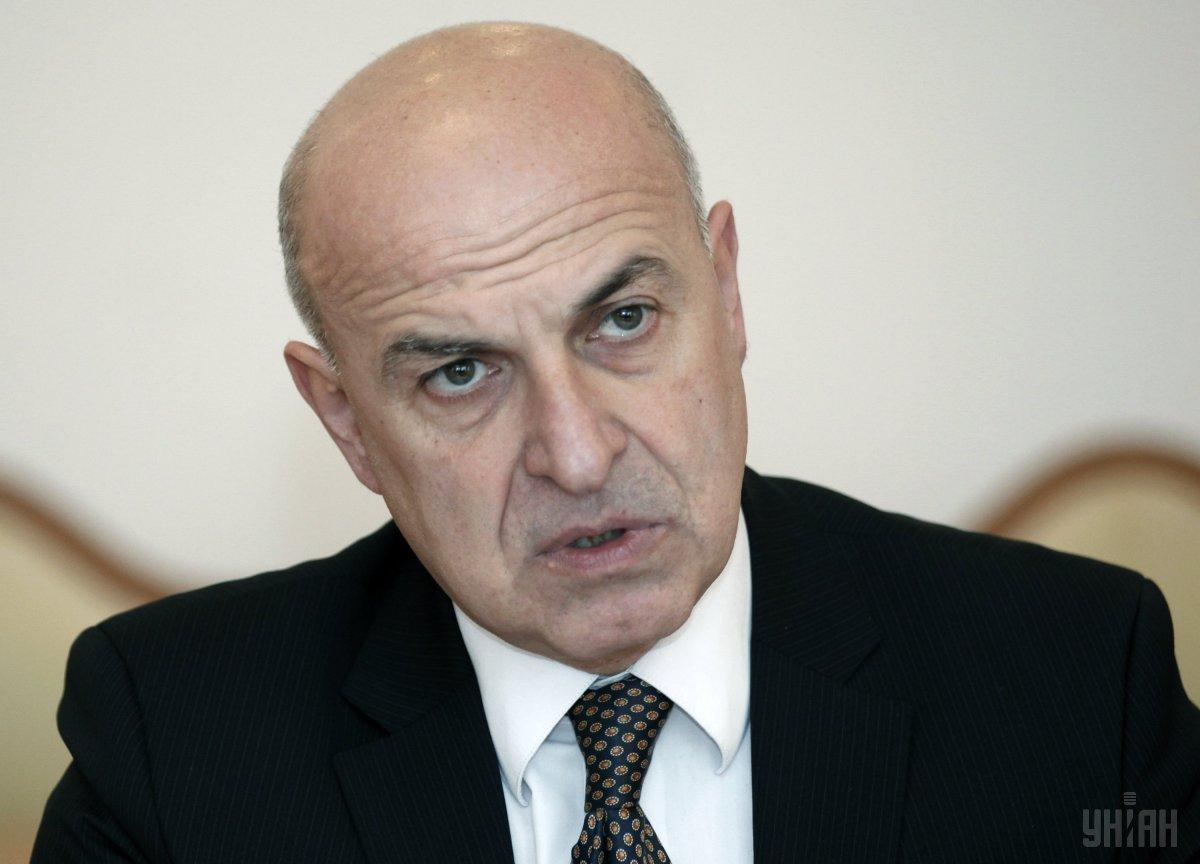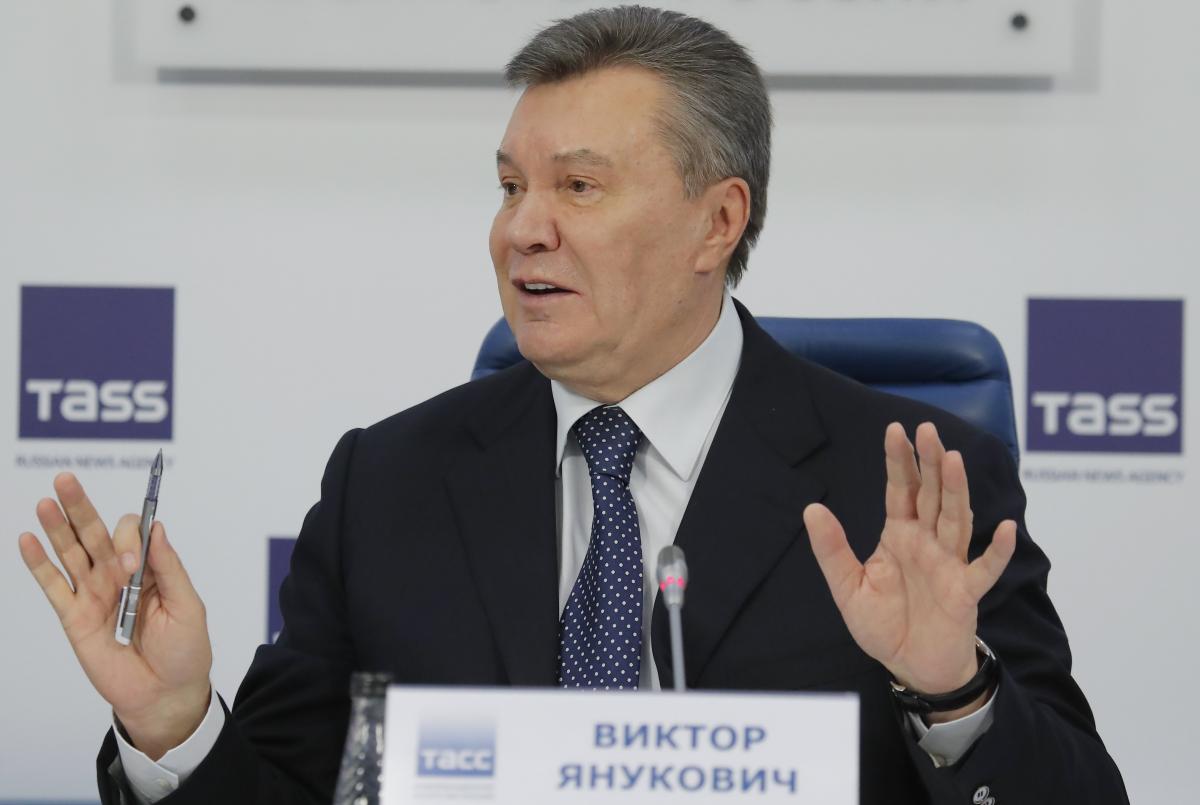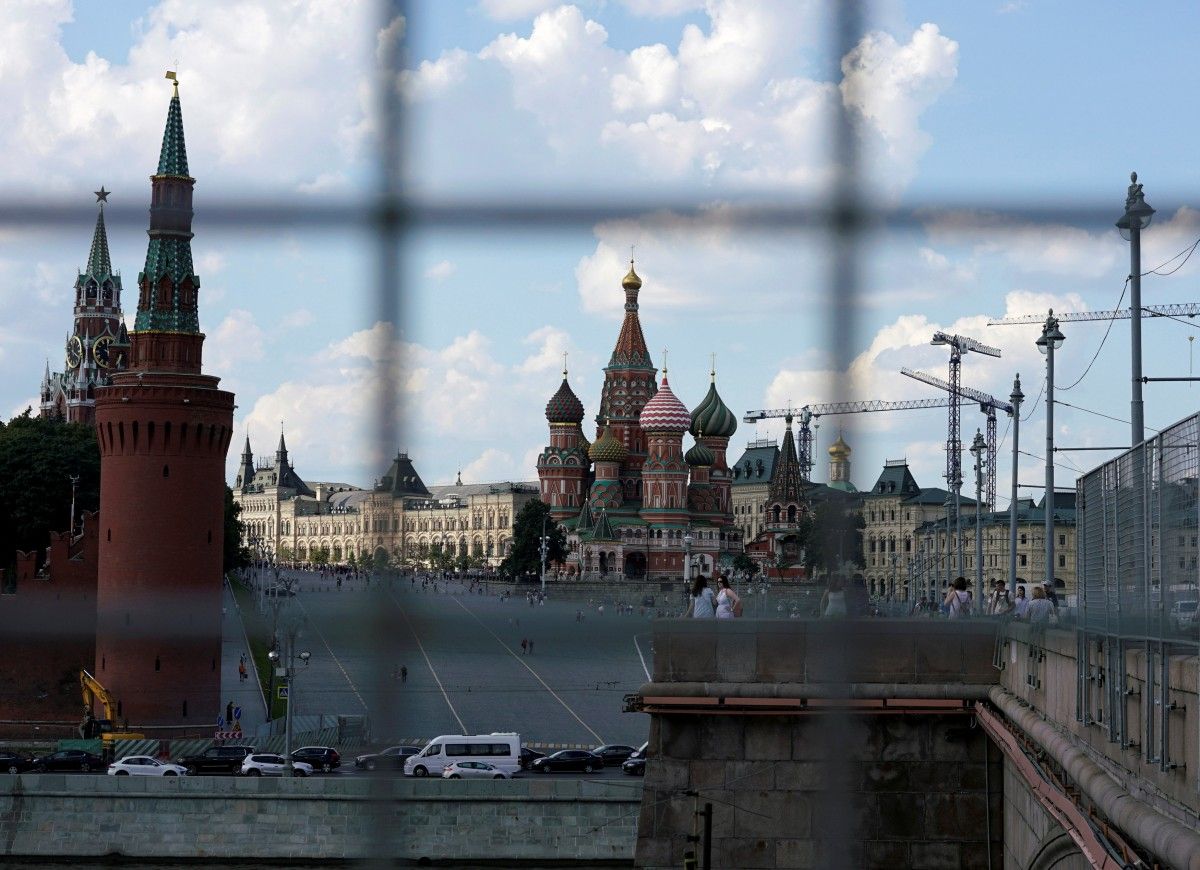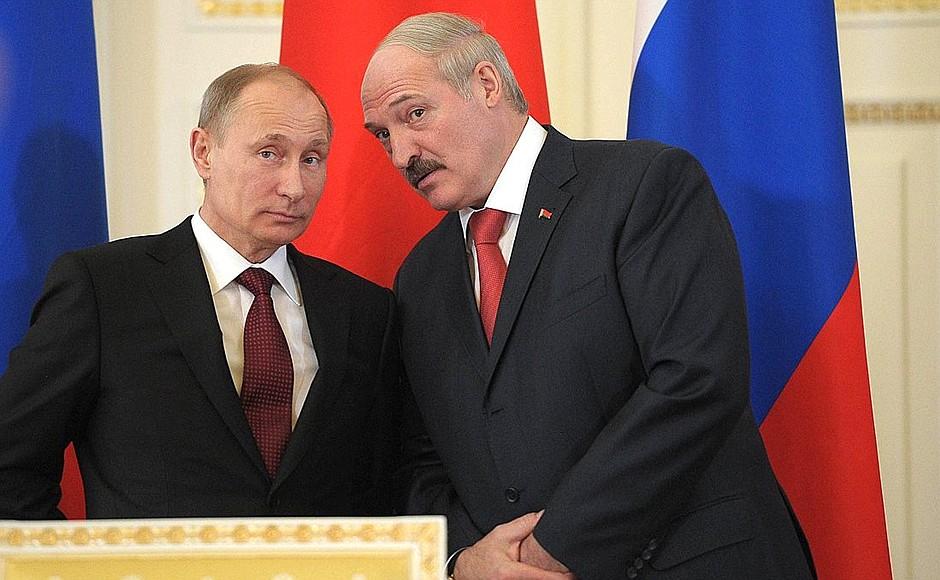
Georgian diplomat Valery Chechelashvili: Revolution of Dignity resulted from Russia beginning to categorically object Ukraine-EU rapprochement
Georgia's ex-Ambassador to Russia, former GUAM Secretary General Valery Chechelashvili spoke about how ten years ago the West had high hopes in relation to Russia, thus driving the world into a current dead end, about the philosophy of the Kremlin regime, and on why for Russia, the rapprochement of Ukraine and other post-Soviet countries with the EU (not with NATO) has become a problem.
*The material is published by UNIAN in the framework of cooperation with the Russian-language project of the Georgian TV company Starvision, “Pogranichnaya ZONA.” Project author: Yegor Kuroptev.
Valery Chechelashvili is a Georgian diplomat, who since 2016 has been a senior researcher at the Georgian Foundation for Strategic and International Studies. He served as the Georgian Ambassador to Ukraine (1994-1998), in the Russian Federation (2004-2005), Secretary General of the Organization of the Black Sea Economic Cooperation (2000-2004). He also represented Georgia in the UN and other international organizations. In 2005, he was appointed First Deputy Foreign Minister of Georgia. From 2007 to 2016, he headed the Organization for Democracy and Economic Development - GUAM.
Valery Chechelashvili, in an interview with the Starvision TV company's project “Pogranichnaya ZONA”, told how ten years ago the West had pinned high hopes on the Russian Federation, which put the world in a current dead end, about the philosophy of the Kremlin regime that does not allow Russia to develop, on why for Russia, the rapprochement of Ukraine and other post-Soviet countries with the EU (not with NATO) had become a problem, and what kind of mistakes of friendship with Russia Belarus continues making today.
Thank you for being a guest of our program. In today's issue, we are talking about post-Soviet countries in principle.
Ukraine and Georgia are at the very least moving towards democratic development. There are certain successes: an association with the EU and a movement towards NATO. Do you think that the other post-Soviet countries could somehow break free from the Soviet past and also follow the path of democratic development, taking into account at what price Georgia and Ukraine achieved an independent choice of cooperation with western partners?
Thanks for the invitation. This is a great honor for me. I'd like to compliment the work you are doing – not only for Georgia, but for all the region. I don't like the term post-Soviet space. We must move away from it, but, frankly, there is no new one yet. I would also add Moldova to these two countries that you mentioned, which is not moving towards NATO, because it is a constitutionally neutral state. By the way, this did not help them in solving problems with the Russian Federation.

Our opponents from Russia always tell us that for them, the main issue is that of NATO expansion and, for example, if Georgia were a neutral state (by the way, there are some followers of this idea who are pursuing it), all problems could be solved. I think this is slyness, because the problems of Chisinau, which cannot be resolved, the problems of Azerbaijan, which also never said that it wants to become a member of NATO, say that this is absolutely not enough.
Ukraine under Yanukovych was practically neutral. One point is interesting here – it seems that at the beginning, the rhetoric of Russian politicians and diplomats was that the European Union is okay, we can develop all kinds of relations with it, and so on, but NATO is a “red line” for us. NATO should not expand, because we have our own concerns for our security. But it turned out that it's the European Union that is the main stumbling block, because the Revolution of Dignity of 2013 in Kyiv was due to the fact that Russia began to categorically oppose the movement and use all sorts of methods to this end. By the way, this also applied to Armenia because the country ratified almost synchronously an almost similar agreement on association with the EU, which also included a free trade area, but in September 2013, then-President Mr. Sargsyan was summoned to Moscow and within 24 hours canceled the long-term work of Armenian diplomats who, in principle, achieved a similar result to that of Georgian diplomats.
But for some reason, it did not cause a wave of discontent, as it was in Kyiv.
As you can see, it did, but a little later. By the way, here I'd like to say that the spring events of this year in Armenia showed that Armenia is not a Eurasian state, but a European one, because the way it happened was a pure manifestation of this in its slogans, methods, and so on. It was "packed in a national wrapper" though.
Returning to the question of how states can get out of this vicious circle ... It would be best of all to get out of it together with Russia. If we imagine the fantasy situation where Russia becomes a full-fledged member of the international community and acts in accordance with the international documents it signed and ratified... In particular, the final Helsinki Act, which very clearly forms the international legal system. By the way, for these legal principles, then Soviet diplomacy fought hard and achieved serious success, because we can remember that both Helmut Schmidt and Erich Honecker were signatories of the agreement. Imagine the position of the Federal Republic of Germany and its leader, who sits next to Erich Honecker and signs an agreement that lists territorial integrity, sovereignty, non-interference in internal affairs, and so on. These principles cannot be extrapolated only in one direction, they must act throughout this whole space.
If we imagine such a fantastic situation where Russia adheres to these principles, many problems could have been avoided.
Do you think that the Kremlin has been pursuing a policy, which it has been conducting for the last ten years, starting with Georgia, due to external factors? Or is it used primarily for domestic policy and the preservation of its regime?
It's both. This is the essence. This is the philosophy of this regime. Outside of this philosophy, it is difficult for the regime to imagine its own existence. The philosophy of a strong hand, a strong state, where there is a very strong and tough vertical of power. By the way, this is one of the main reasons why the Russian Empire once collapsed, and then the Soviet Union, too.
It is impossible to use the same instructions to control from a single headquarters the space, which stretches over 10 time zones. It is impossible for the Kremlin to use the instructions alone to control both Kaliningrad region and Vladivostok. In order to properly manage the regions, their leaders cannot fly to Moscow every two weeks and receive instructions.
How can we talk about a strong state, when it is under sanctions, experiencing an economic crisis. Sanctions, as stated, will be introduced almost every month. Yes, there is a widespread view that this is strength. But where is the strength in reality? After all, the rest of the world treats them with disdain, while Georgia and Ukraine treat them as occupiers... Is this strength in the modern world of 2018?
You put the question in the plane of the modern categories that Europe and the whole civilized world are guided with. Unfortunately, the space where Russia is today, and where it has put itself, does not live by such categories. Why do we aim for the EU? Because there is a better quality of life, better standards of education, better protected human rights, better opportunities for business development. If all this were better in the space of the Russian Federation, then perhaps this dilemma would not exist at all.

The thing is that today, the Russian government is not guided by such categories. They have other ideas about the strength of the state. The strength of the state for the Kremlin lies in the idea of how many vassals they have around their perimeter, how much money they have and how they position themselves in international relation. It's not how their partners or opponents perceive them, but how they see themselves in this regard.
A very important role here is played by a very professionally adjusted propaganda machine. I am forced to watch Russian TV shows. I want to understand what's the driving force today in Russian society. It's very hard. It is very hard to watch.
It turns out that the current Kremlin regime is dangerous not only for neighboring states, it does not bring anything good to its own population, which deserves a much better fate, based on the potential that Russia has: human, natural resources, geopolitical… This country is practically "everywhere." Everyone are their "neighbors." Unfortunately, today this does not benefit either their neighbors, nor the Russian population, nor its opponents, nor its allies. If today they put before themselves a simple question: in fact, who is our consistent supporter and ally, and frankly try to answer it, it will be difficult.
Let us turn to Belarus. There was a lot of news about President Lukashenko. He has met with Putin several times in recent months. The first question is general. Lukashenko’s regime, which is trying to sit on all the chairs, can’t be called democratic at all, but on the other hand, it’s not dictatorship. How do you understand for yourself the regime in Belarus?
As far as this is seen from a distance, Lukashenko’s position is strong in Belarus. The opposition is not a strong opponent. But in the Union State the relations are not ideal.
How successful is this example of balancing between different value cultures, given that one day they exchange hugs with Putin like best friends and then they say in the news that tomorrow a war may start, then they say they're opening the border, then closing it? Is this a successful balancing example?
The stability of any state lies with its institutional structure, which is based on generally accepted principles – democracy, strong institutions, independent courts, and so on. This is a stable guarantee of the development of the state in the right direction. From this point of view, Belarus still has a lot to do. When such a burden falls on one person, it is not easy; therefore, shifting from one side to another is visible. This is not an element that contributes to the development of the country, its stability and future. Belarus is a country that has a very specific position in Europe. This will be the last state to become a member of the Council of Europe. Unfortunately for Belarusians, I think so.
Why not?
It will not, because the Council of Europe believes that by its criteria, standards ...
... but Russia is suitable, right?
... Now Russia would not have been accepted to the Council of Europe. You know, there are problems with the deprivation of their right to vote now. When Russia became a member of the Council of Europe, great hopes were pinned on Russia. It was the democratic government of Yeltsin. Recall the speech that Yeltsin delivered in the U.S. Congress when he spoke about the idol of communism and that Russia would never be a threat to humanity. He was cheered. But we, those who are around Russia, understood that there are double standards in this, because we already had conflicts. We already had experience in treaties and agreements with Russia, where we were constantly playing the role of losers, because Russia did not fulfill its obligations. As a result, we lost control over the border and lost Abkhazia.
We tried to explain this to big partners, but there was no such understanding there, because there were illusions related to the fact that Russia would gradually be able to integrate into all international structures.
But even in 2008, there was no such understanding when Tagliavini wrote her report.
Unfortunately, this was not the case in 2008 either, which served a very bad service, including to Russia. Due to the fact that there was no reaction at that time, they allowed themselves to do what they did in the Crimea, and now they have fallen into a corner from which it is very difficult to find a way out.
I remember well Lavrov’s speech in the State Duma in the fall of 2008, when he said that Saakashvili was something out of the ordinary, that such a phenomenon no longer exists, therefore the principle of territorial integrity remains a priority in Russian foreign policy, and Georgia should be punished... Then many politicians and political scientists made a sigh of relief, not only around the perimeter of Russia, but also in Europe and other countries, because it seemed to be a guarantee that Russia would no longer allow what happened in Georgia.
It was the first war in Europe in the 21st century.
Now there is a very active dialogue underway regarding the deployment of military bases. Lukashenko has always rejected the idea and even spoke very tough that they would not have any Russian bases. The Poles asked the Americans for protection against a possible threat from the Kremlin, to deploy a military base in their country. Now, after several meetings with Putin, Lukashenko stated that if the American base was deployed in Poland, then Belarus and Russia would have to respond. Experts are already discussing that the response may lie either in the deployment of the Russian base, or in the placement of the Iskander systems on the territory of Belarus. If this is implemented, will this mean that Lukashenko has finally chosen his side and he will become part of the conflict between Russia and the West and supporters of the West?

Good question. First, I think that the base in Belarus is not very important for Russia, because they have Kaliningrad and they can do anything in Kaliningrad (which Russia does and which causes serious protests in Europe). But an extra military base never hurts.
kremlin.ru
From the point of view of President Lukashenko, I think he will take advantage of the situation to get additional economic bonuses for himself.
Whatever the contradictions, Belarus is very strongly connected with Russia.
Yes, but, if they deploy the base, will it mean a complete rupture of relations with the European Union and NATO? Maybe even with Ukraine? Lukashenko always offers to become a mediator. But what agreements can there be if you have an enemy base on your territory ...
Regarding Belarus's mediation, I think that... the military base is a very serious act. This idea has the right to life. If there is a military base, in fact, Belarus chooses a side, which does not really fit into the Belarusian foreign policy of the past five years, because Belarus has been rightfully and wisely trying to build bridges with the whole world. Belarus borders not only with Russia. To the west of Belarus, there is a huge five hundred million market, very profitable for Belarus, if we talk only about economic interests. Therefore, this is a very serious decision with far-reaching consequences.
From your point of view, taking into account Georgia, where there is now also a Russian military base, and Ukraine, where there also is a Russian military base, what threatens the security of Belarus more — the Russian military base on its territory or the U.S base in the NATO member state, Poland?
Well, the Belarusian government cannot seriously consider that Poland or the USA want to conquer Belarus. And i’m not talking about Russia at all. Why should the Poles conquer Belarus?! It is Belarus that should "conquer" its place in Europe, become a full member of the pan-European processes.
So what kind of response is Lukashenko talking about? Lukashenko said that in response to this, he, along with Russia, must...
...It turns out that he joins the Kremlin's rhetoric, which builds its foreign policy on the external threat to Russia, as if someone is really trying to conquer it.
Thanks for the interview.
Thank you.
Yegor Kuroptev

